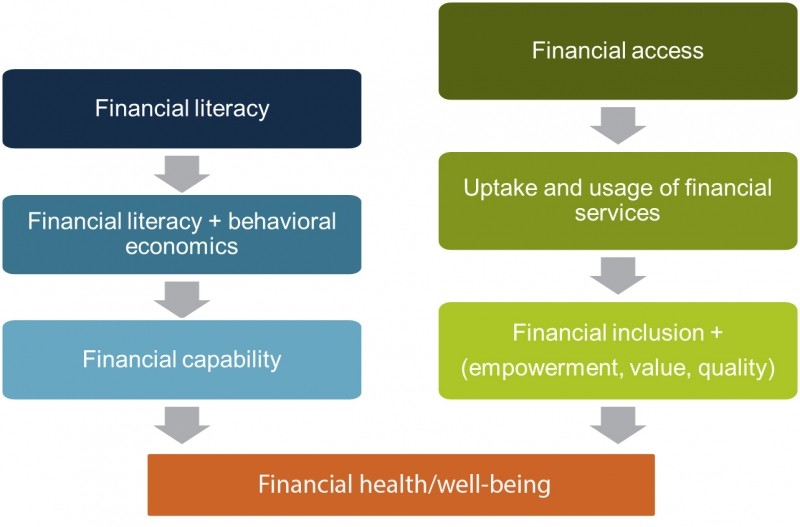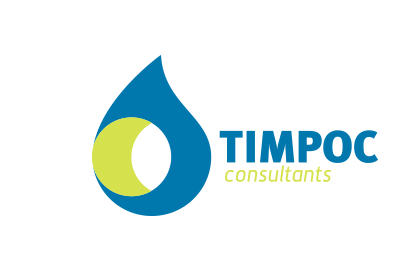Are financial institutions aware of the thin line between agricultural lending and rural lending? Why are they surpassed to see that farmers and their families use loans extended under an agricultural lending programme for ‘other’ things than what ‘the institution had in mind for them’? The receiving family uses it temporarily to pay the school fees for their children or medicine for a sick member of the family. Later on, they buy goods they can sell again on the marker, and a few months after the loans were handed over, they start ploughing, sowing and later on harvesting. So yes, they use it eventually for agriculture. Over time we may observe that they are physically, mentally, socially and a few months later even economically healthy. But would it not be fair to gibe such financing the label ‘rural finance’? For sure then an evaluator will conclude that the programme was very successful ….
Auteur: Klaas Molenaar
Rural or agricultural?
Are financial institutions aware of the thin line between agricultural lending and rural lending? Why are they surpassed to see that farmers and their families use loans extended under an agricultural lending programme for ‘other’ things than what ‘the institution had in mind for them’? The receiving family uses it temporarily to pay the school fees for their children or medicine for a sick member of the family. Later on, they buy goods they can sell again on the marker, and a few months after the loans were handed over, they start ploughing, sowing and later on harvesting. So yes, they use it eventually for agriculture. Over time we may observe that they are physically, mentally, socially and a few months later even economically healthy. But would it not be fair to gibe such financing the label ‘rural finance’? For sure then an evaluator will conclude that the programme was very successful ….
Rural or agricultural?
Are financial institutions aware of the thin line between agricultural lending and rural lending? Why are they surpassed to see that farmers and their families use loans extended under an agricultural lending programme for ‘other’ things than what ‘the institution had in mind for them’? The receiving family uses it temporarily to pay the school fees for their children or medicine for a sick member of the family. Later on, they buy goods they can sell again on the marker, and a few months after the loans were handed over, they start ploughing, sowing and later on harvesting. So yes, they use it eventually for agriculture. Over time we may observe that they are physically, mentally, socially and a few months later even economically healthy. But would it not be fair to gibe such financing the label ‘rural finance’? For sure then an evaluator will conclude that the programme was very successful ….
Webinar for staff of financial institutions working with migrant entrepreneurs succesfully completed
Webinar on Financial education for staff of Financial Institutions working with migrant entrepreneurs
Contrary to what many assume or prejudge, financing migrant entrepreneurs can be indeed attractive and profitable for financial institutions. But this requires that staff of such institutions leave the beaten track. It is not only up to migrant and refugee entrepreneurs to learn how to best access and use financing, but staff of financial institutions must also be willing to learn more about:
- The context refugee and migrant entrepreneurs operate and live in,
- The barriers they face while seeking financing and the cost-effective way to help them overcome these barriers,
- The various options for the migrant entrepreneur to choose from: micro, small enterprise or (hybrid) self-employment,
- The real financing needs during different stages of the businesses set up
Only by understanding and taking into consideration these aspects, it is possible to design and offer the right financing to migrant and refugee entrepreneurs.
On the 25th of February, YMCB organised a webinar on “Better access to Finance for Migrant and Refugee Entrepreneurs” for staff of financial institutions reaching out to migrant and/or refugee entrepreneurs, trainers, and coaches. Four modules to train staff of financial institutions were presented – see also Guide on ‚Financial Education for better access to Finance for Migrant and Refugee Entrepreneurs’, co-authored by Klaas Molenaar , who also lead the team that developed the guide,
Each module has a special focus:
- Knowing the migrant entrepreneur ,
- Guiding the client towards effective financing,
- Assisting in making use of financing and
- Offering the right financing packages
An open discussion followed, in which participants had a chance to have their questions answered by the panellists and co-authors of the Guide, and share their opinions and experiences.
Around 33 professionals attended the webinar, most of them working with financial service providers such as formal banks, non-bank financial institutions, micro finance institutions, representatives of migrant organisations and some staff of non-financial service providers.
YMCB organizes the Webinar on “Better access to Finance for Migrant and Refugee Entrepreneurs”, taking place on Thursday, the 25th of February, from 16:00 to 17:00 CET.
At the webinar the Financial Education for better access to Finance for Migrant and Refugee Entrepreneurs, will be presented. Timpoc Consultants prepared this guide together with staff of The Hague University of Applied Sciences for the YMCB project.
Read more at YMCB Webinar on “Better access to Finance for Migrant and Refugee Entrepreneurs”,
Working together on Financial Inclusion….
The special consortium that Timpoc Consultants formed with MicroFinanzas, MicroFinanzas Rating, and MDF Ede, was awarded a Long-Term Agreement (2021-2023) by UNCDF to implement evaluations under UNCDF’s annually updated Evaluation Plan. In all those evaluations we pay special attention to financial inclusion of the less privileged in the countries where UNCDF is active.
As migrant entrepreneur…How to Access finance?
Towards real(istic) Access of Finance for Migrant Entrepreneurs, A manual for migrant entrepreneurs, trainers/ coaches, staff of public authorities and staff of financial intermediaries with tools and instruments
Over the past years we have lead the Community of Practice on Access to Finance for migrant Entrepreneurs as member of the EMEN project. In the Community of Practice, we have worked together with many partners to understand better how access to finance for migrant entrepreneurs can be improved. By the end of 2020 we submitted a practical manual for migrant entrepreneurs, trainers/ coaches, staff of public authorities and staff of financial intermediaries. It contain comprehensive set of practical tools and instruments.
If you want to obtain a copy, click here https://emen-project.eu/library/
Are you financially healthy?
Manual for coaches and mentors to set up and implement A Financial Health Action and Enhancement Plan for Micro-entrepreneurs – Second version, September 2020

For the European Microfinance Network (EMN) and Appui au Développement Autonome (ADA) Klaas Molenaar wrote this manual for business advisors, mentors, coaches, and/or trainers working with micro-entrepreneurs to help them deal effectively with financial issues. It contains a comprehensive approach to measure financial health, methods to enhance and deepen financial understanding and the capacity to deal with financial issues. It is based on the outcome of a joint research project carried out in 2019 and subsequent testing in 2020.
To obtain a copy of the report and manual, click here https://www.european-microfinance.org/publication/enhancing-financial-health-micro-entrepreneurs-beyond-mere-assessment
Bootcamp for Growth Oriented Diaspora and young African Entrepreneurs for the African Union
Timpoc Consultants and its partner R&D Ethiopia have successfully run the first Bootcamp for Growth Oriented Diaspora and young African Entrepreneurs under a contract with the African Union – CIDO. The bootcamp took place in Dar es Salaam, Tanzania in August 2019. The participants running their business in more than 18 different countries, demonstrated a great desire and enthusiasm to contribute to the development of the private sector in their countries. It is expected that this Bootcamp will be rolled out the coming years in the various regions where the African Union is active.
At the end we did not get Trapped.
MDF West Africa and Timpoc Consultants developed and tested jointly with staff of UPSA – Ghana the special training programme for Ghanaian SMEs on Transparent and Practical Financial Reporting. In 2018 the first series of the training was offered to the MSE market. It is quite instrumental in assisting owners and senior managers of SMEs to report in an open way on the performance of their businesses and their possible contributions to the SDGs. For more information contact MDF West Africa
EMEN 2nd International event revealed new ideas on financing migrant entrepreneurs
Not all migrants and refugees arriving in Europe are destitute, without assets and resources. They know how to organise themselves. They set up new (internet based) systems to support each other also in setting up new businesses
On 20th June the EMEN and The Hague University of Applied Sciences organised the 2nd International Event with a special focus on Access to Finance for Migrant Entrepreneur.
At the event the leading questions were:
- how migrant entrepreneurs might finance their new ventures?
- how they can make use of existing formal and informal financing mechanisms?
- how they can make use of mainstream facilities?
- how special mechanisms might be relevant, needed and desirable?
Existing organizations, projects and programmes were given a platform to show what they are doing. A market space was created where ideas were offered and idea- hungry, interested persons had a chance to be get information about approaches that they might use in their own environment. Leading, thought provoking professionals and practitioners were given the floor to share their ideas; brief, catchy pitches and brief talks confuse, opened eyes and gave that little push into the direction people already wanted to go in.
For more information go to http://emen-project.eu/
